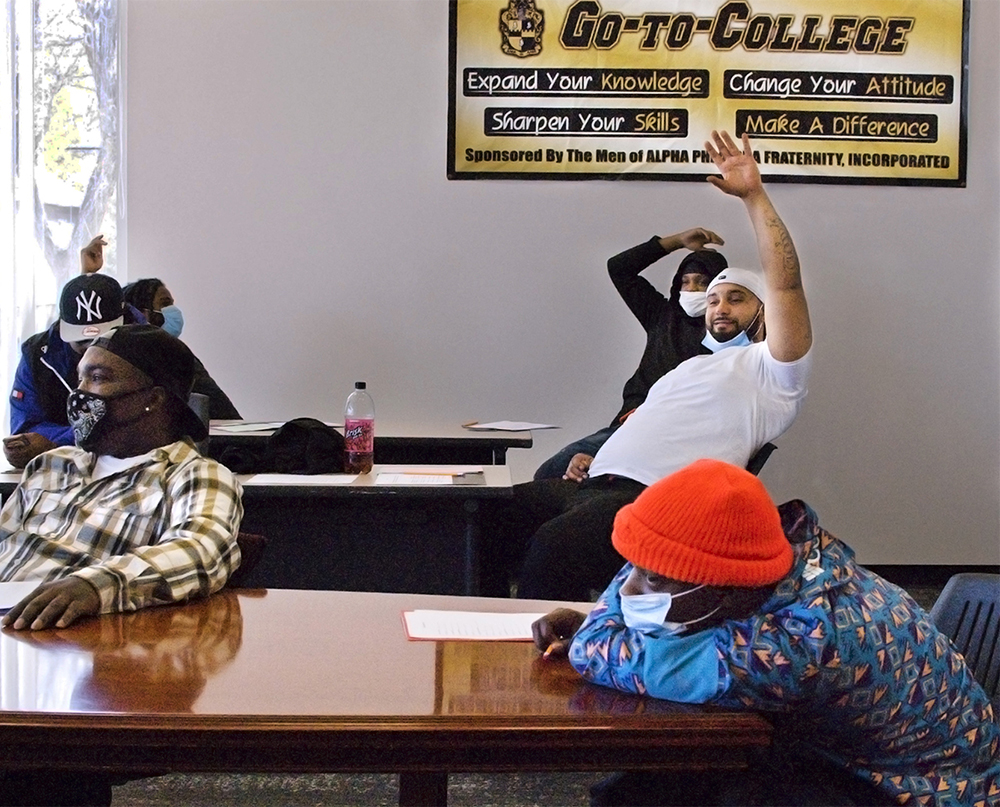
A new GED program at the Wisconsin Avenue Resource Center is the first community class offered by the Regional Office of Education. That office has offered a program at the jail for many years. (PHOTO BY CLARE HOWARD)
“I can help,” said Beth Crider, Peoria County regional superintendent of schools.
Crider has made it part of her mission to provide access to GED classes to a wide population excluded from jobs or limited in employment opportunities because they don’t have a GED. Her office has provided GED classes at the Peoria County Jail for many years, but last month started its first community class.
The COVID pandemic provided more grant opportunities, and Crider secured one to open a GED classroom at the Wisconsin Avenue Resource Center, 2301 N. Wisconsin Ave.
“My mission at the Peoria regional office is to empower students, educators and the community –– to provide you with agency and opportunity so you can make decisions, get a job or go to ICC,” she said.
The new GED class at the Wisconsin Avenue Resource Center started in November. The response has been high enough so GED classes will be offered there in the morning as well as in the afternoon.
Crider said most people have no idea why students drop out of high school. It can be due to gun violence, becoming a caregiver for a dying mother, childcare demands, homelessness or mobility that forces students to attend multiple high schools and become discouraged due to failure to transfer credits.
“Most people think homelessness means sleeping outside,” Crider said, but the reality is many students move from relative to relative, friend to friend, shelter to shelter.
“They carry all their belongings in a plastic bag,” she said. “Look at Maslow’s hierarchy of needs. If a person is struggling with where they will sleep, eat and be safe, then high school is not at the top of their list.”
GED classes and tests are not easy, and Crider said adults have to be committed in order to complete the process.
“When they are ready in their heart and their mind, we have to be ready with a program,” she said.
Diann Duke and Sue Stoner welcomed students to the first session Nov. 3.
Their research found a potential 30,000 people in the region who could be helped by the program.
The Wisconsin Avenue Resource Center will also help inmates at the Peoria County Jail who are enrolled in GED classes but are released before securing a GED.
Chris Johnson, workforce development specialist with the City of Peoria, is enthusiastic about providing space at the new resource center.
“Everyone deserves an opportunity and a second chance,” he said. “When we identify hurdles, lack of a GED is a hurdle, and we can get this one hurdle out of the way.”
Research by Andrew Sum, Center for Labor Market Studies at Northeastern University in Boston, found net lifetime impact on society (including taxes paid and costs such as incarceration):
No H.S. diploma or GED, cost to society $5,191
With H.S. diploma or GED, contribution to society $287,384.

Recent Comments